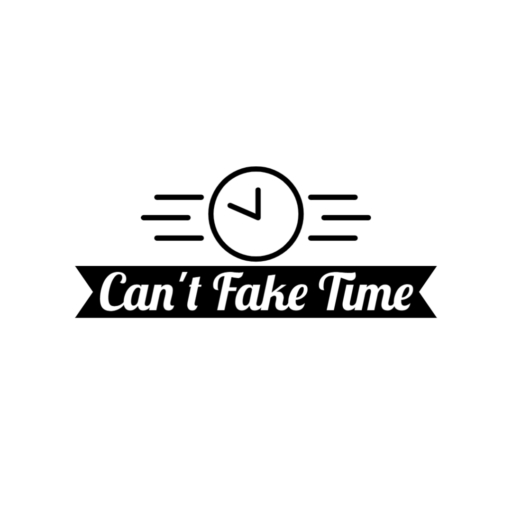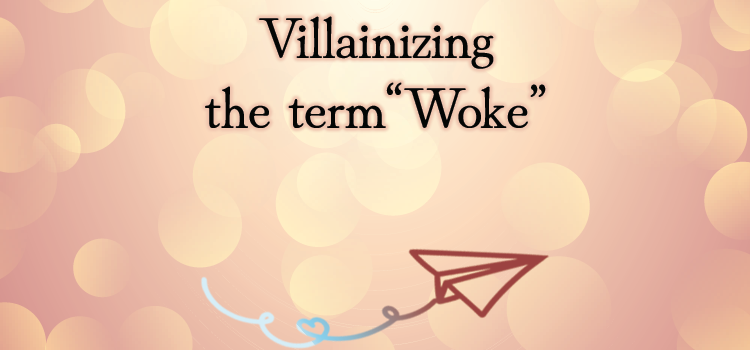Have you ever said a word over and over and over and noticed how quickly it loses its meaning? If not, try it – just pick the closest object on your left, and repeat the word thirty or forty times and pay attention to how quickly and decidedly the sounds become divorced from the object right beside you.
This is such an interesting exercise because it makes us aware of how malleable language really is. Words have meaning one minute, and the next, they are just chewed up syllables, like gum that’s lost its flavor.
This is a concept that George Orwell explored beautifully in his classic novel, 1984. In this dystopian society, paradoxes are weaponized to confuse the masses and distort thought. The propaganda arm of “The Party” is called the “Ministry of Truth,” and the military is called the “Ministry of Peace.” Call something exactly what it is not, repeat it frequently enough, and you can rob the term of meaning entirely.
As an English teacher and especially an IB Language and Literature teacher, I’ve watched how terms like “politeness” have been twisted and demonized into “political correctness,” which makes trying to be considerate into an invasion of free-speech rights. “Setting an example” is when you publicly do the right thing in hopes to trigger other people into following suit has now become “virtue signaling,” but, real talk, we would just call it “hypocrisy” if there wasn’t action there also. And now “generally having consequences,” is called “cancel culture.” Once upon a time, it meant that the consequences grossly outweighed the actions that triggered them, but now it means, “Waaahhh I’m being criticized at all?” Not to mention the word “socialism,” which has lots of meaning – including our popular USA policies of medicare, medicaid, and social security – but is generally thrown around as if it just means “bad.”
I’ve recently noticed this very Orwellian effort to villainize the term “woke,” and I hate that because it is actually such a beautiful metaphor. Especially as white people, our journey to being an ally feels like waking up – asleep, in your dreams, you exist in an imaginary world surrounded entirely by your own thoughts and experiences, but then you “wake up” and realize that you’re part of this huge, complicated world, and you have work to do today. And just like waking up, that happens over and over and over. You see something, read something, hear something, learn something, and then you “wake up” to the new day of understanding and tackling it all.
Encapsulating this discussion is Joe Rogan, the quintessential interview-format podcaster. He somehow manages to walk the line between being affirming and challenging and (frankly) oblivious, no matter who he’s talking to. (I will personally always love Joe Rogan because my sister and I grew up on Fear Factor, but I digress.) Because I have seen him have shining moments and really confounding ones, I choose to believe that Rogan is just expressing an idea he felt was appropriate in driving this conversation forward in the moment, but I also saw so many responses on social media to him that I feel he gives a productive foundation to this discussion as I go on:
https://www.esquire.com/entertainment/a36463910/joe-rogan-woke-culture-silencing-straight-white-men/
Feel free to watch the whole clip in context, but this is the quote that stood out to me: “You can never be woke enough – that’s the problem, it keeps going. It keeps going further and further down the line and if you get to the point where you capitulate, where you agree to all these demands, it’ll eventually get to straight white men are not allowed to talk.”
(In the interest of space, I am going to ignore the obvious irony that he’s worried about being silenced on a huuuuugely popular podcast that makes him tooooons of money.)
His is the sentiment that I see all over the place – the idea that “woke” is some sort of platform or set of beliefs or opinions to which you either capitulate or don’t.
That’s not what “woke” means at all, because Joe Rogan is right.
“Being woke” is essentially the definition of “growth mindset.” Growth mindset is a term coined by Carol Dweck that refutes essentialism. You aren’t born that way – you can learn and grow. You’re not static, you’re dynamic. And maybe that meme you posted wasn’t “woke,” and you can not only delete it, but you can choose better next time!
“Woke” means being committed to being part of the solution. And that can be intimidating because you become more aware – more “woke” about – new problems every day. It feels like, “oh god, I just learned all this about racism, but now I need to understand sexism as well? And ableism??? And what even is fatphobia????”
Yes, and that’s okay. No one is capable of understanding every problem in our society, but every person should want to help make solutions work. I, personally, have made myself well-read on anti-Black racism in America, but that means I need feedback on anti-Black racism in France as much as I do anti-trans sentiment in the USA. And that’s great! I want to learn, and there are experts and communities who want to help me.
I think of “wokeness” as if I were on a hike. If some park ranger came and told me I was going the wrong direction, I wouldn’t respond with outrage that they were “canceling” my hike and “infringing on my rights” to walk wherever I wanted, but I would be grateful that they were saving me from wasting time and potentially trampling endangered plants on the way. (This metaphor does assume we’re all on the same path, though, towards a more equitable, just, and inclusive world, which I know is an assumption, but one that I need for my sanity.)
Are these redirections always offered constructively? Well, no and yes.
In my experience, “woke” people tend to really lean into wryness and sarcasm. Maybe it’s an appreciation of the irony, an exhaustion with the general hypocrisy of everything, or a face-saving measure because pulling someone aside to tell them that their behavior is a problem feels a lot heavier than making a quip about it. So in that way, perhaps it doesn’t always feel constructive.
But offering this type of feedback is, make no mistake, a radical act of love. It manages to assume that the person receiving the feedback has the best intentions. If their intentions were suspect, it wouldn’t be worth the bother. It also trusts the receiver to internalize and reflect on it, because if the trust wasn’t there, it wouldn’t be worth it. It radically says, “I love you, I trust you, I respect you, and I need you to know you’re on the wrong track and I trust that you will take it to heart.”
You can never be healthy enough. You can never be educated enough. (You can never be caught up on dishes enough!) And you can never be “woke” enough. Some things in life are just journeys – where we have great moments of success and just as many or more missteps.
“Woke” is about seeing those missteps as extra steps for our Fitbit challenge, and the hope that those extra steps will help us become stronger, fitter, healthier, and better able to support the people in our lives who need that hand up.


In my opinion, the opposite of “woke” is sleep. We’ve been sleep for far too long. Those who are denigrating “woke,” are the very ones benefiting from our slumber and they wish for it to stay that way. So when they viciously mock being or becoming woke, they are really saying, “please go back to sleep, you’re ruining my plans to keep you in confusion and discomfort and me in luxury and unearned abundance… it’s better that way.”